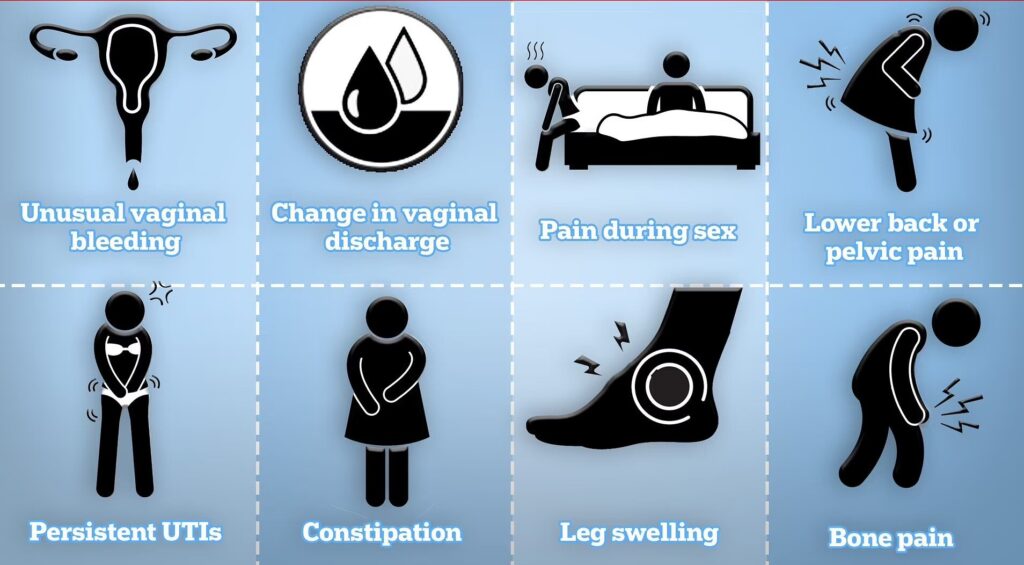“Communities, countries and ultimately the world, are only as strong as their women’s health.”
This quote by Michelle Obama truly showcases the importance of women’s health on just her as an individual but everyone else around her too. This is also a quote that came to my mind when I heard Sudha Murty’s maiden speech in Rajya Sabha where she addressed the issue of cervical cancer.
An educator, author and philanthropist, Sudha Murty spoke about how the most important thing for women is their health, but how they often tend to neglect it. Due to this negligence, most women go to hospitals only when they are in the later stages of cervical cancer. She also spoke about the importance of the cervical vaccination for girls aged 9-14 years as prevention for this disease.
Cervical cancer is the fourth most common cancer in women at present globally, and second most frequent cancer among women in India. According to the Indian Council of Medical Research’s National Cancer Registry Programme, the estimated number of cervical cancer cases in the country in 2023 was more than 3.4 lakh.
Cervical Cancer results in over 77,000 deaths in India each year, and 75% of cases are not identified until they have reached advanced stages. With all these alarming numbers, yet our knowledge about it remains limited. Cervical cancer develops in the lower area of the uterus, and it is preventable and treatable if diagnosed on time.
Why is it so prevalent?
Some of the risk factors due to which it occurs so often are early marriage and childbearing, multiple pregnancies, poor genital hygiene and long-term use of oral contraceptives.
Apart from this, some other causes of cervical cancer are:
- Human Papillomavirus infection- HPV strains 16 and 18 are the primary causes.
- Unprotected sex, which increases the risk of HPV transmission.
- Carcinogens in tobacco smoke heighten cancer susceptibility.
- Women with a weaker immune system are more likely to suffer from it.
- Limited access to healthcare services and a low income and socioeconomic status further make women prone to cervical cancer.
First signs of Cervical Cancer

When it comes to cervical cancer, some signs and symptoms that you should not ignore are:
- Vaginal bleeding that is unusual for you, including after the menopause or between regular periods.
- Vaginal bleeding after intercourse.
- Changes in vaginal discharge
- Pain or discomfort during sex
- Unexplained pain in your lower back or between your hip bones
- Longer and heavier menstrual bleeding.
How can we prevent it?

Even while presenting the Interim Budget for 2024-25, the Finance Minister, Nirmala Sitharaman, proposed vaccination for girls aged 9-14 years in order to prevent Cervical cancer. Recognizing the severity of this issue, there have been numerous initiatives undertaken by the government such as:
- The National Programme for Prevention and Control of Cancer, Diabetes, Cardiovascular Diseases and Stroke (NPCDCS) focuses on screening for cervical cancer at the primary healthcare level by training healthcare workers. Regular screening programs for women aged 30 years and above by using methods like Pap smears and visual inspection.
- Human Papillomavirus (HPV) Vaccination Programs have been started by some states against the various strains of HPV that cause cervical cancer. Example- The Delhi government’s school-based HPV vaccination program for adolescent girls.
- Cancer Awareness Campaigns under the National Cancer Control Programme focus on preventing, screening and early detection.
- Ayushman Bharat involves providing treatment for early cancer screening and treatment for the economically weaker sections and focuses on improving the health infrastructure.
- Collaboration with several NGOs such as Cancer Awareness, Prevention and Early Detection (CAPED) Trust and National Cervical Cancer Coalition to spread awareness and provide treatment.
- Availability of vaccine- HPV vaccination is known to be the only vaccine that can help prevent cancer. The introduction of the vaccination is a significant milestone. Cervavac by Serum Institute of India is the first Indian-made vaccine to prevent HPV infection and cervical cancer. It is available for Rs. 4000/- for two doses combined. The government is currently working on providing vaccines to girls aged between 9 and 14 years in their schools or at nearby government primary health centres. This has been an initiative by various departments like the: Health, Education and Women and Child Development.
- In India, a major problem is that people are not aware of the severity of this issue, especially in rural areas. Public health campaigns and awareness programs can help remove the cultural barriers and taboos surrounding sexual health and cervical cancer. This can be done by approaching local communities with a sensitive approach to discuss this.
In case you need any advice or have to consult and need medical help regarding cervical cancer, you can contact them.
In the end, we can’t afford to neglect a woman’s health as not only will it take a toll on her mental and physical health but affect the entire household. As Sudha Murty said in her speech, “When a mother dies, it is counted as one death in the hospital, but for the family, a mother is lost forever.” So it is important for all of us to understand the severity of the issue and spread awareness because only then can we win the battle against cervical cancer.
Also Read, Top 5 Places where you can find the Best Macarons in Delhi NCR
Also Read, Love is never too old: 9 Mature Bollywood romantic movies for a family-friendly night
